artificial intelligence
Latest

IBM AI fails to beat human debating champion
After suffering defeat to AI at Go and Dota 2, the battle between man and machine was starting to look a little one-sided. But a human has finally notched up a win against our future robot overlords. Champion debater Harish Natarajan triumphed in a live showdown against IBM's Miss Debater AI at the company's Think Conference in San Francisco on Monday. The 2012 European Debate winner and IBM's black monolith exchanged quick retorts on pre-school subsidies for 25 minutes before the crowd hailed Natarajan the victor. You can watch the debate in full below.
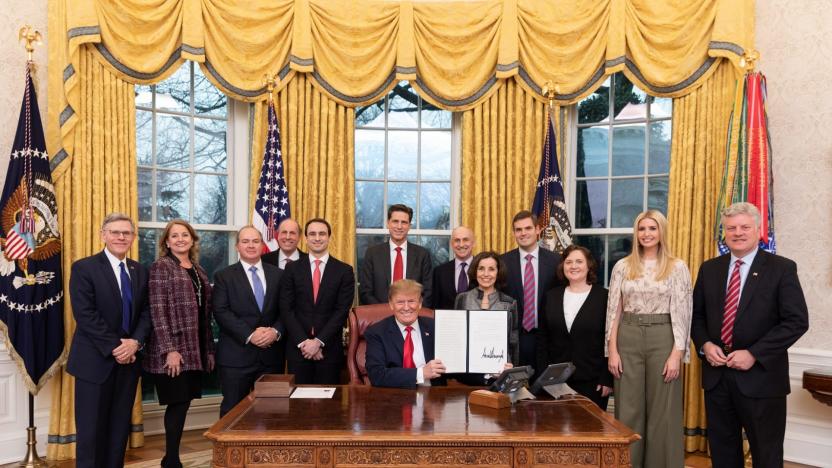
Trump signs executive order 'prioritizing' AI development
After the President largely avoided the subject of AI in his SOTU address, a new directive could shape the nascent sector as it spills into everything from healthcare to military warfare. Trump's "American AI Initiative" directs federal agencies to prioritize AI in their research and development, however it did not announce any specific funding assigned for these goals.

This robot artist will draw sketches of humans
If you've ever wondered how you look through the eyes of a robot, you may soon find out. Engineers at the UK-based Engineered Arts are working with a British art gallery owner to create a human-looking robotic artist with the ability to draw, according to Reuters. The artificial intelligence, named Ai-Da, will use a bionic hand equipped with a pencil to sketch what it sees.
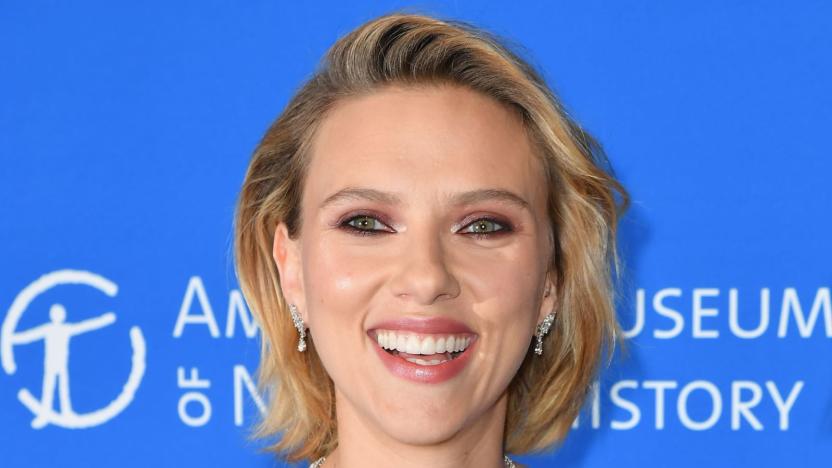
Scarlett Johansson says fighting deepfake porn is 'fruitless'
Scarlett Johansson knows better than most how horrible a place the internet can be. She's been the victim of leaks before where private photos have ended up publicly available. And now she's been targeted by a new kind of harasser, ones that use artificial intelligence to create surprisingly convincing (but fake) pornographic videos of her. One such video has racked up over 1.5 million views, and she's come to the sad conclusion that trying to fight these "deepfake" videos is "fruitless" and a "lost cause."
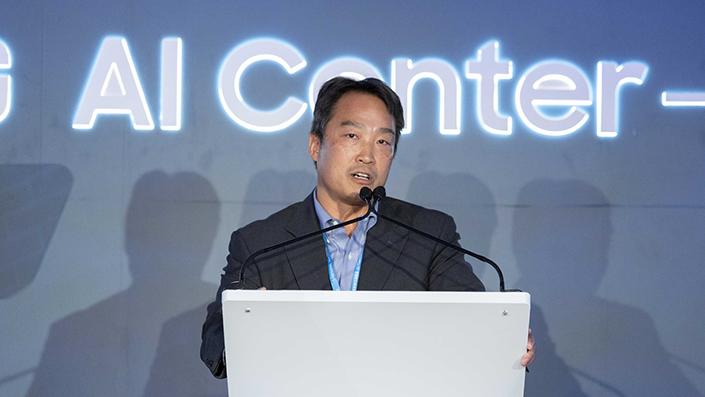
Samsung's New York AI center will focus on robotics
Samsung now has an artificial intelligence center in New York City -- its third in North America and sixth in total -- with an eye on robotics; a first for the company. It opened in Chelsea, Manhattan on Friday, walking distance from NYU (home to its own AI lab) boosting Samsung's hopes for an academic collaboration.
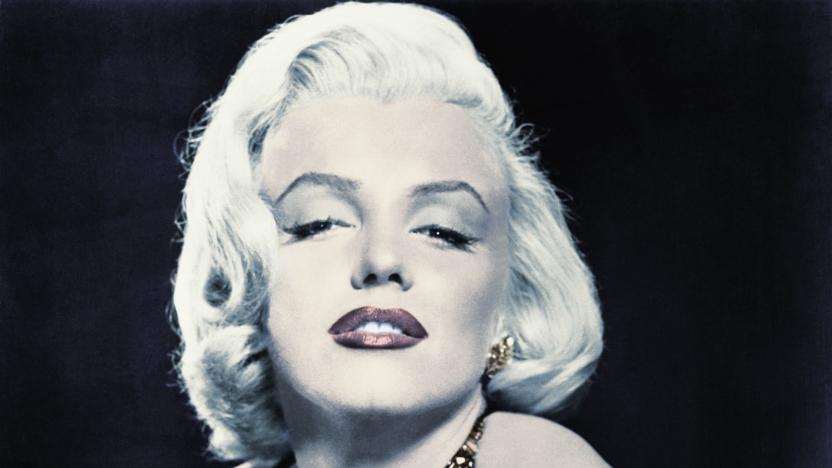
Adobe's Scribbler AI automatically colorizes any portrait
Finally! Adobe has devised a method of adding a touch of color to black and white images without all the dimension-jumping time travel (looking at you Pleasantville). At the company's Adobe MAX 2017 event on Thursday, research scientist Jingwan Lu demonstrated Project Scribbler, an AI-driven program that can not only add color but also shading and image texture to grey-scale pictures in just seconds.
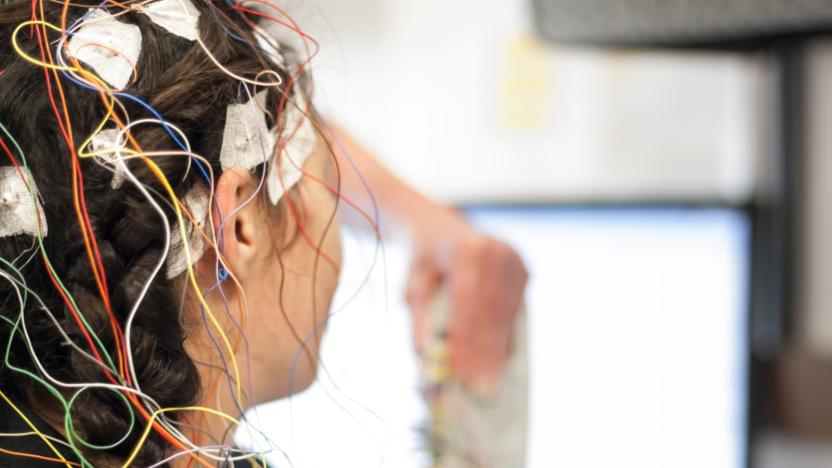
MIT uses radio waves and AI to more accurately study sleep
Sleep tracking has moved to the bedroom, with apps, peripherals and wearables that use movement or your device's microphone to figure out when you're sleeping or awake. Those with sleep disorders, however, are still stuck with large, disruptive arrays of physical sensors for sleep studies. Now, however, researchers at MIT have started using radio signals and artificial intelligence algorithms to analyze patients' sleep stages without physical sensors and they're reporting a high rate of accuracy. This could help people with Parkinson's, Alzheimer's and epilepsy, all of whom can have sleep disruptions that are hard to detect. Eventually, it may help all of us.
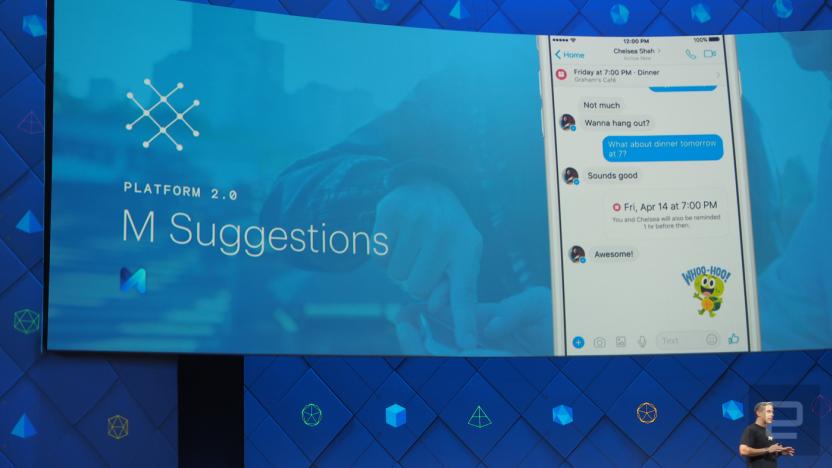
Facebook's latest AI add-on will teach chatbots to sound less robotic
If you've been paying any attention to what Facebook is up to lately, you'll know that artificial intelligence and conversational chat bots are two of the most important initiatives for the company. Today, the Facebook Artificial Intelligence Research group (FAIR) is announcing a new initiative that bridges the two. A new online "lab" will let anyone test and use publicly-available datasets to test their own AI dialog systems. The new system, called ParlAI, is FAIR's attempt to make smarter AI bots that aren't as single-minded as many of the ones available now.

The Engadget Podcast, Ep 2: One More Robot
In Episode Two: One More Robot, editors Cherlynn Low, Dana Wollman and Chris Velazco join host Terrence O'Brien to talk about how fitness trackers ruined Happy Meals, the true potential of AI and try to figure out what monster would want the backspace key to navigate back a page in Chrome.

This selfie AI is trained to know a good shot from a bad one
What's the difference between a good and bad selfie? A neural network artificial intelligence, trained on a diet of over two million selfies, apparently knows. First, the important findings: good selfies involve being a woman -- and one that's tilting their head. A small forehead and longer hair are good points too. Filters help, as do borders. For men, while they didn't rank in the AI's top 100 (ugh, bias!), the bot advises that you show your full head and shoulders. Longer hairstyles (and ones combed upwards) don't hurt mens' chances either. Its creator, Andrej Karpathy, who has worked with Google Research and DeepMind, explains that it's a convoluted neural network which does the image recognizing and, er, judging. You can judge yourself (for yourself) using the network's Twitter bot (61.7 percent here), or read on for how it learned to do all that.

Wolfram's new website can identify objects in your photos
Wolfram Research can already do some pretty cool things, like answer Twitter questions and spot overhead flights. Now, the maker of the Mathematica programming language and Alpha knowledge engine can perform another trick: figuring out what's in a photo. The Wolfram Language Image Identification Project can make out about 10,000 common things, including animal species, gadgets and household objects. It uses a database of around ten million images to perform the trick, which Stephen Wolfram figures "is comparable to the number of distinct views of objects that humans get in their first couple of years of life."

'Ex Machina' shows Turing isn't enough to test AI
With Ex Machina, the directorial debut of 28 Days Later and Sunshine writer Alex Garland, we can finally put the Turing test to rest. You've likely heard of it -- developed by legendary computer scientist Alan Turing (recently featured in The Imitation Game), it's a test meant to prove artificial intelligence in machines. But, given just how easy it is to trick, as well as the existence of more rigorous alternatives for proving consciousness, passing a test developed in the '50s isn't much of a feat to AI researchers today. Ex Machina isn't the first film to expose the limits of the Turing test, but it's by far one of the most successful. And, like the films 2001 and Primer, it's a work of science fiction that might end up giving you a case of philosophical whiplash.

Five things 'Chappie' gets right, and wrong, about AI
Take Johnny 5 from Short Circuit, add a dash of Wall-E and a bit of badass swagger from RoboCop and you've got Chappie, the star of Neill Blomkamp's latest film. He's the first robot to achieve consciousness in a near future where other, less smart bots are taking on the grunt work of policing. But instead of being recognized as a major scientific breakthrough, he ends up being raised by a group of gangsters (led by Ninja and Yolandi Visser of Die Antwoord), after being created in secret by a brilliant engineer (Dev Patel). While the film, unfortunately, isn't quite up to par with Blomkamp's breakout hit, District 9, it still brings up some interesting points when it comes to the eventual rise of artificial intelligence.

Nao and Forever: How I learned to love a robot
My love affair with mechanical companions can be traced back to Teddy Ruxpin, the animatronic bear that replaced the inanimate My Buddy doll as my go-to plaything as a young boy. But three nights in Las Vegas almost destroyed that lifelong fascination. Almost.

Elon Musk donates $10M to keep AI from going full Skynet
Elon Musk hasn't been shy about bringing up the potential dangers of artificial intelligence -- now, he's actually doing something to help prevent an AI takeover. Musk just announced that he's donating $10 million to the Future of Life Institute (FLI) for a research program that will focus on keeping AI "beneficial" to humanity. And by beneficial, he means making sure future computers will actually listen to us when they surpass our intelligence, and not take matters into their own hands when they realize they don't need us. Musk isn't some outlier -- Stephen Hawking has made it clear he's terrified of the AI revolution as well, and FLI has also gotten plenty of researchers to sign an open letter calling for research on keeping AI beneficial.

Stephen Hawking is still terrified of the AI revolution
When renowned physicist Stephen Hawking repeatedly warns us about the impending robot apocalypse, we should probably pay attention. "The development of full artificial intelligence could spell the end of the human race," Hawking told the BBC yesterday. While he admits early forms of AI have been useful (it's clearly been a huge help for his speech systems), he worries that we won't be able to keep up with super-intelligent versions that outwit humans. Hawking made similar comments back in May when he called the development of full AI "potentially our greatest mistake in history." (Or maybe he just really hated Transcendence.) And he's not the only genius singing this tune; Tesla's Elon Musk is also afraid of a Terminator scenario. While plenty of scientists have far more measured expectations for AI, Hawking's comments are worth noting. We really don't know what's ahead for intelligent machines, so perhaps we should proceed with caution.

Elon Musk is scared of killer robots
Elon Musk really wants us to be worried about the potential danger of artificial intelligence. He just told an MIT symposium that he feels it's "our biggest existential threat," then ratcheted the hyperbole further, saying "with artificial intelligence, we're summoning the demon." He added that "HAL9000 would be... like a puppy dog," and said governments need to start regulating the development of AI sooner than later. Last August, Musk said that super-intelligent robots were "potentially more dangerous than nukes." Paranoid rantings? We doubt it -- given his track record, it's more likely that Musk knows something we don't.

Google is partnering with Oxford University to improve its A.I.
Google is assembling a team comprising some of the world's most renowned artificial intelligence researchers to create... something? Back in January, Google bought A.I. company DeepMind for a reported $400 million, and no one really knew why. Now, it's announcing a partnership with the Oxford University to further its research into image and language recognition. As part of the partnership, Google has acqui-hired two companies born from the renowned university. They are Dark Blue Labs, a startup focused on natural language understanding, and Vision Factory, which describes itself as offering "world-class, scientifically-proven object recognition and text recognition systems." All seven founders of the two companies will be joining Google, which is hoping the move will accelerate efforts to improve speech and image recognition through "deep learning," a type of artificial intelligence that mirrors biological neural networks.

Meet the computer that's learning to kill and the man who programmed the chaos
In Kirkland, Washington, sits a computer ready to wage war. It drains the planet's resources, amasses massive armies and prepares for world domination. "It's trying to get smarter and it is, very quickly," says the man who sits next to the computer as it calculates routes toward victory. While the warring machine sounds like something out of a James Cameron film, it's the foundation for the artificial intelligence in Planetary Annihilation, the Kickstarted real-time strategy game from developer Uber Entertainment. That doesn't make it any less terrifying.
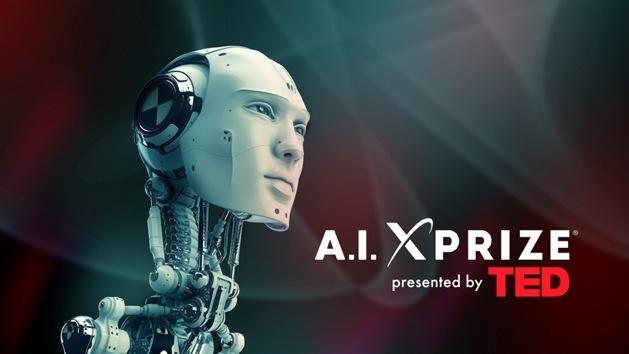
Xprize wants to fund a TED Talk given by artificial intelligence, and you can help
Xprize is known for its ambition. The outfit, with the help of some big name (and deep pocketed) partners, has launched initiatives to spur Star Trek-like tricorder development and even get private industry to land a rover on the moon. But now, it's teaming up with TED, that forum for big ideas, to do something a little different. The two companies have just announced an Xprize for Artificial Intelligence and here's the hook: they want the AI to conduct its own TED Talk with no human assist. Mind. Blown. None of this is actually set in stone though and, in fact, the partners are looking to you -- yes, you -- for help in deciding how this all goes down. Xprize is hosting a dedicated subsite so that readers (excuse us, big thinkers!) like you can pitch in with ideas on what the AI TED Talk format should be, how long it should run, what topic will be chosen and so on and so forth. You'll even get to help determine what type of AI makes the grade: will it be a walking robot, a rollie or a disembodied voice? It's up to you to pitch in and figure it out. Because, hey, if you can't actually help build the AI, setting it up for stage fright is the next best thing.











